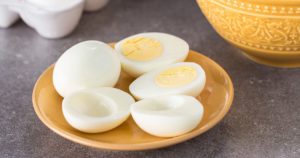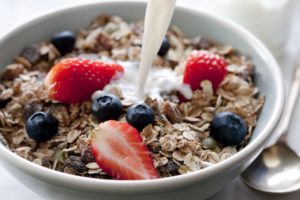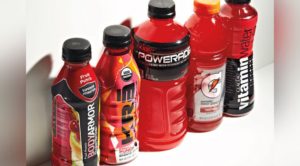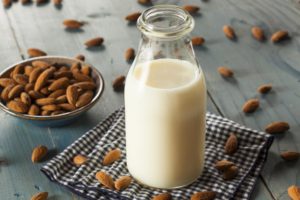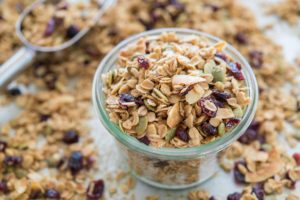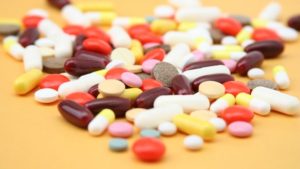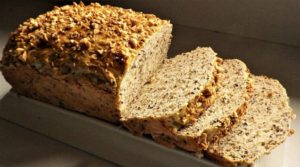No cholesterol, no trans fat, no added sugar, multigrain, all natural, organic … These are just some of the phrases that seem to shout “healthy food” from the labels of our favorite food brands. Many people assume that if something has a healthy buzzword on the label, or even that if it’s sold in a health food store, that it’s automatically a healthy food, but that is not always the case. Many food items that we consume of thinking healthy aren’t really that much healthy. Here’s a list of 10 such food items.
10 –Juice
Photo credit:nocamels
When you juice fresh fruits and veggies, you remove their fibre, the key ingredient that keeps you feeling full and satisfied until your next meal. What you keep is the sugar. In the short term, a high-sugar, low-protein diet means hunger pangs and low energy. In the long term, you can lose muscle mass, since muscles rely on protein. If you’re set on having a bottled juice or smoothie, first check the ingredients label and make sure it contains no more than 15 grams of carbohydrates per serving.
9 –Pre-Prepared Salads
Photo credit:residualpay
Many prepackaged salads you’ll find at restaurants, airport terminals, and supermarkets contain upwards of 1,000 calories. Meanwhile, the cheese, croutons, and meats pack a ton of sodium, which is used both as a preservative and to boost the salad’s flavor. Unfortunately, many prepackaged salads don’t come with ingredient or nutrition labels. If that’s the case with whatever salad you’re eying, don’t buy it. Look for ingredient labels and make sure neither calories nor sodium is through the roof. Or, better yet, make your own salad.
8 –Egg Whites
Photo credit:md health
Lots of people began avoiding egg yolks after nutrition experts suggested that eating cholesterol was bad for you because it raised your cholesterol levels. A growing body of research shows that for the vast majority of people, dietary cholesterol (that comes from foods you eat) doesn’t really have much of an effect on your blood cholesterol. So unless you have high cholesterol, ditch those egg-white-only alternatives.
7 –Protein Bars
Photo credit:foodbev
Many protein bars contain as much sugar as a candy bar but with a few extra grams of protein. As a result, you’re getting a few grams of protein—often from questionable sources—along with copious amounts of sugar, trans fats, and other fillers. You should get your protein from whole foods like eggs, meat, poultry, fish, beans, and legumes, even after a workout.
6 –Healthy Cereals
Photo credit:NHS
Cereals aren’t all that different than the sugary stuff you ate as a kid. Case in point: On average, foods displaying the yellow Whole Grain Stamp contain more sugar and calories than do whole-grain foods that don’t sport the label, according to research from Harvard University. Instead of looking at the front of the box to make your selection, look at the back. The cereal should contain fewer than 10 grams of sugar per serving, at least 5 grams fiber per serving, and contain bran in the ingredients. “The fiber in bran has been shown to help reduce cholesterol, regulate blood sugars, and contain beneficial antioxidants.
5 –Sports Drinks
Photo credit:muscleandfitness
Sports drinks contain carbohydrates, which is a quick source of energy when your body is depleted of stored and usable energy. Although they do contain electrolytes like sodium and potassium which are lost through sweat, they’re often high in sugar and calories, which could lead to weight gain.
4 – Almond Milk
Photo credit:medicalnewstoday
By themselves, almonds are protein powerhouses. But by volume, a typical glass of almond milk is only about 2 percent almonds and contains almost no protein. And all the vitamins in it are added. So if you’re looking for a truly healthy alternative, opt for soy, skim, or low-fat milk.
3 – Granola
Photo credit:thepioneerwoman
Granola’s oats deliver impressive numbers in fiber and iron, while nuts and seeds add heart-healthy unsaturated fats and some proteins. But along with these benefits, granola can be very high in calories, oils you don’t need, and contain scoops of sugar with healthy-sounding names. It’s packed with sugar and calories – a cup contains about 600 calories or the same amount as two turkey-and-cheese sandwiches or about four cereal bars.
2 –Multivitamins
Photo credit:newatlas
Nearly half of American adults take vitamins every day, but no one ever explained it that why we need it so badly. We do need small amounts of vitamins to survive, of course – without vitamins such as A, C, and E, for example, we’d have a hard time turning food into energy, and could develop conditions like rickets or scurvy. But research shows we get more than enough of these substances from what we eat, so there’s no need for a pill.
1 – Multigrain Bread
Photo credit:breadmakermachines
Multigrain breads only indicate that the bread contains multiple grains. It says nothing about their degree of refinement. Refined grains have been extensively processed, and their bran and germ, the fiber-, vitamin-, and mineral-containing part of the grain, have been removed, leaving only simple carbs that spike your blood sugar and promote weight gain.



